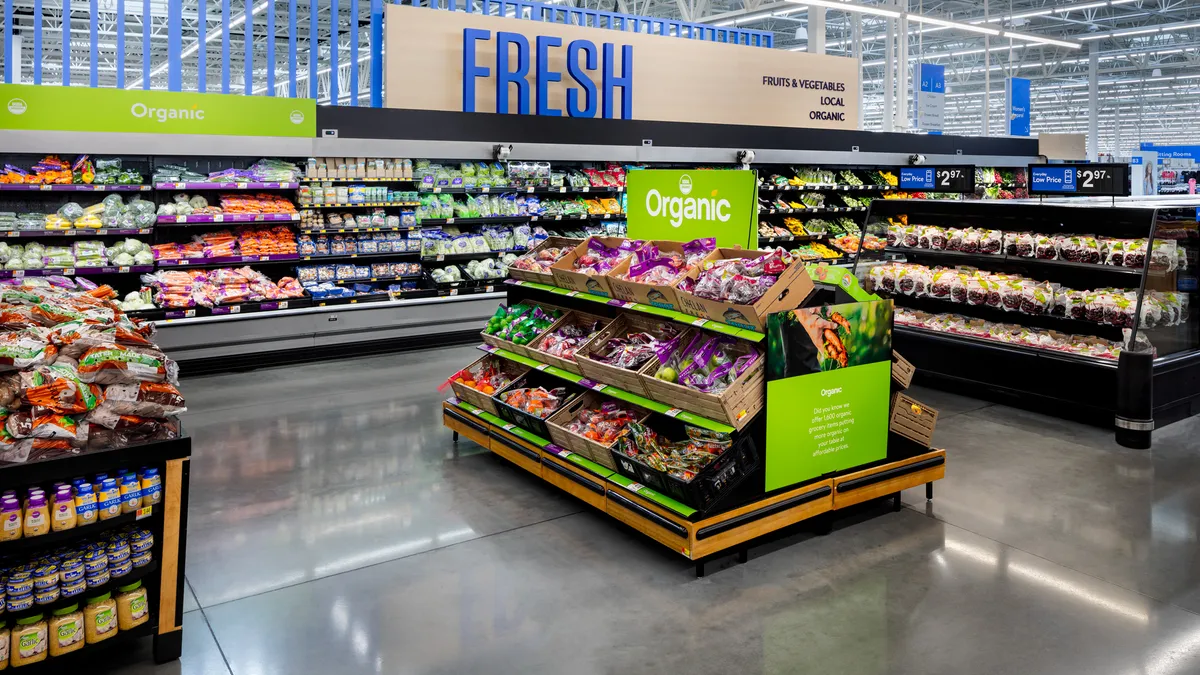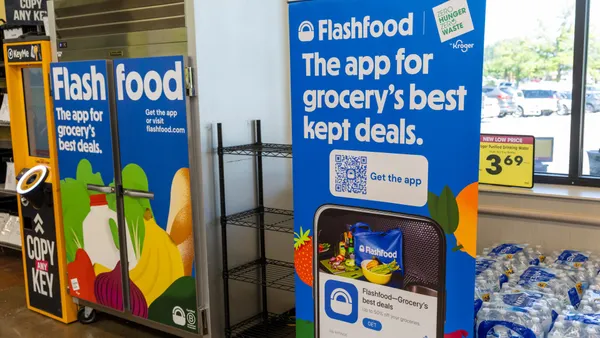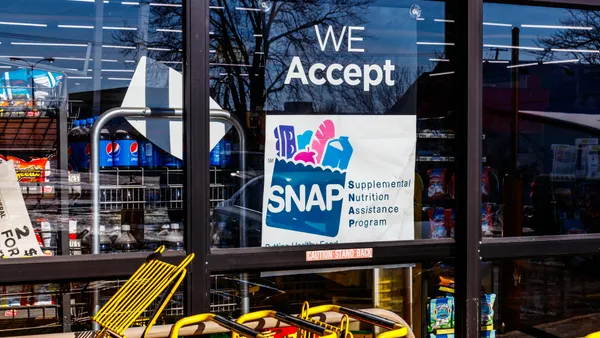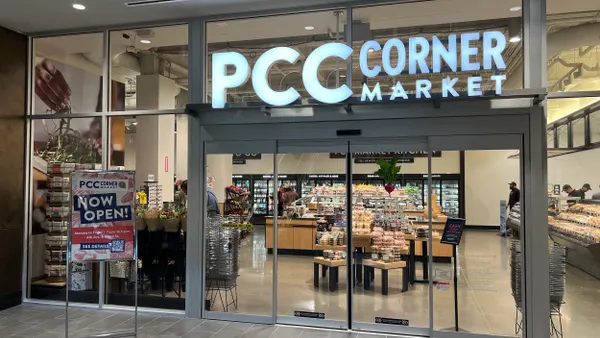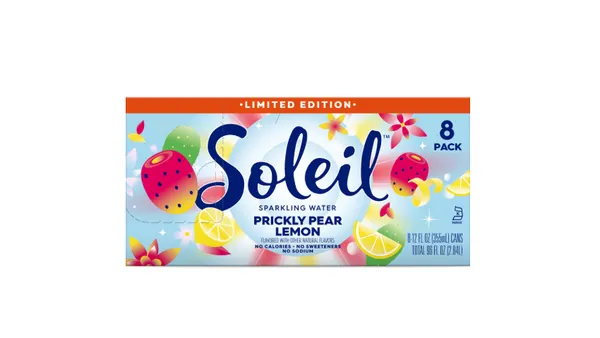Dive Brief:
- Walmart debuted a policy to protect pollinators on Tuesday, outlining guidelines for fresh produce suppliers, along with the company’s plans to combat habitat loss.
- As part of the policy, Walmart is aiming to have all of its fresh produce and flowers 100% sourced from suppliers following integrated pest management practices by 2025. The company is also asking fresh produce suppliers to phase out their use of chlorpyrifos and nitroguanidine neonicotinoids as pesticides where possible.
- The policy builds on Walmart’s increasing sustainability efforts and its plans to become a regenerative company.
Dive Insight:
With the new policy, Walmart is now one of seven major U.S. grocery retailers with policies protecting birds, bees, insects and other pollinators, joining Kroger, Costco, Albertsons, Giant Eagle, Aldi and Rite Aid, according to Friends of the Earth, an environmental group. Of those, Walmart and Giant Eagle have set timeframes in their policies for reaching certain goals.
The new policy notes that the Intergovernmental Science-Policy Platform on Biodiversity and Ecosystem Services (IPBES) says wild pollinators, which are important for crops and agriculture production, have significantly declined and become less diverse in certain areas. IPBES research, according to Walmart, attributes pollution, climate change, pesticide and intensive agricultural management as some of the factors causing the decline.
"Driving the scale of our collective pollinator commitments through our supply chain can create industry-leading changes and have a significant positive impact for the future of our planet," Martin Mundo, Walmart U.S.'s senior vice president and general merchandise manager, who oversees produce and global produce sourcing, wrote in a blog post.
To ensure compliance with integrated pest management adoption for fresh produce and flower production, Walmart will ask its suppliers to be verified by a third party and specify the certifications they have from a list that includes USDA certified organic, Bee Better Certified and Rainforest Alliance. Additionally, Walmart plans to urge fresh produce suppliers to report pesticide application and biodiversity management annually through the company’s sustainability surveys.
Walmart is also looking to grow areas for bees, birds, insects and other pollinators to live. The U.S. division of the company is asking fresh produce suppliers to protect, restore or create pollinator habitats by 2025 on at least 3% of their land. Additionally, live-plant suppliers will be asked to label pollinator-friendly plants as Walmart looks to educate consumers and avoid selling invasive plant species.
Walmart’s new headquarters in Bentonville, Arkansas, which is opening in phases, will include pollinator-friendly meadows and plants, while its stores will add, when possible, on-site pollinator habitats, the policy said, noting that 21 stores already have pollinator gardens. The company will also team up with local organizations on keeping and growing pollinator habitats in major pollinator migration corridors, Mundo wrote.
Last year, Walmart has unveiled goals of restoring at least 50 million acres of land and 1 million square miles of ocean by 2030 and reaching zero emissions by 2040.
With the new policy, Walmart jumped from scoring an “F” to the top spot with a "C+" on Friends of the Earth’s Bee-Friendly Retailer Scorecard, which ranks U.S. grocery stores on protecting pollinators from toxic pesticides. In a press release, the environmental group called Walmart's policy "the most far reaching to date of any U.S. food retailer."
“Walmart’s policy is a major step in the right direction, but with 40% of insect pollinators facing extinction, all retailers must accelerate a race to the top before pollinators lose their race against time," Kendra Klein, PhD, senior staff scientist at Friends of the Earth, said in the announcement.



